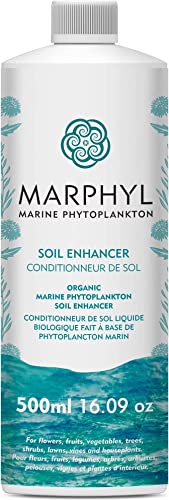We Use CookiesWe use cookies to enhance the security, performance,
functionality and for analytical and promotional activities. By continuing to browse this site you
are agreeing to our privacy policy
Best Rose Fertilizers
From leading brands and best sellers available on the web.#2

Espoma
Espoma RT4 4-Pound Rose-Tone 4-3-2 Plant Food - 2 Pack
View Product
#3

Espoma
Espoma RT4 4 Lbs Rose-tone® 6-6-4 Plant Food
View Product
#4

Miracle-Gro
5%OFF
Miracle-Gro 2756610 Water Soluble Rose Plant Food 18-24-16
View Product
#5
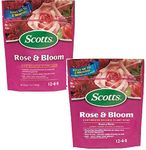
Scotts
Scotts Rose & Bloom Food 3LB (2 Pack)
View Product
#6
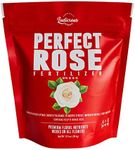
Big Ass Fertilizers
Perfect Rose Fertilizer – 13.5oz Premium Rose and Flower Fertilizer – Floral Nutrients for All Types of Flowers – Plant Fertilizer with Kelp for Soil and Hydroponic Flower Gardens
View Product
#7

ferti-lome
Rose Food 4 LBS by FERTI-Lome MfrPartNo 10830
View Product
#8
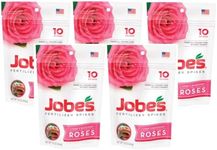
Jobe's Organics
Jobe's 04102 Rose Fertilizer Spikes, 10, Multicolor (5 Pack)
View Product
#9
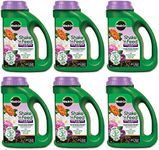
Miracle-Gro
Miracle-Gro 3002210 Shake 'N Feed Rose & Bloom Continuous Release Plant Food
View Product
#10
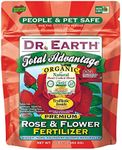
Dr. Earth
Dr. Earth 72855 1 lb 4-6-2 MINIS Total Advantage Rose and Flower Fertilizer
View Product
Buying Guide for the Best Rose Fertilizers
Choosing the right rose fertilizer can make a big difference in the health and beauty of your rose plants. Fertilizers provide essential nutrients that roses need to grow strong stems, lush leaves, and vibrant blooms. When picking a fertilizer, it's important to understand what your roses need at different stages of growth and how different types of fertilizers work. By learning about the key specifications, you can select a product that matches your gardening style and the specific needs of your roses.NPK RatioThe NPK ratio stands for Nitrogen (N), Phosphorus (P), and Potassium (K), which are the three main nutrients in fertilizers. This ratio tells you how much of each nutrient is present. Nitrogen helps with leafy growth, phosphorus supports root and flower development, and potassium boosts overall plant health. For roses, a balanced or slightly higher phosphorus ratio is often preferred to encourage blooming. If you want more flowers, look for a higher middle number. For general growth, a balanced ratio works well. Choose the NPK ratio based on whether your roses need more blooms, stronger roots, or overall health.
Fertilizer Type (Granular, Liquid, Slow-Release, Organic, Synthetic)Fertilizers come in different forms: granular, liquid, slow-release, organic, and synthetic. Granular fertilizers are sprinkled on the soil and watered in, while liquid fertilizers are mixed with water and applied directly. Slow-release fertilizers break down over time, providing nutrients gradually. Organic fertilizers are made from natural materials and improve soil health, while synthetic ones are chemically made and act quickly. If you want convenience and less frequent feeding, slow-release or granular types are good. For quick results, liquid or synthetic fertilizers work faster. Organic options are best if you prefer natural gardening and want to improve soil quality over time.
MicronutrientsBesides the main NPK nutrients, roses also need small amounts of micronutrients like magnesium, iron, and calcium. These help prevent leaf yellowing and other deficiencies. Some fertilizers include these extra nutrients, which can be especially helpful if your soil is lacking. If your roses show signs of poor health despite regular feeding, look for a fertilizer with added micronutrients. For most gardeners, a product with a broad range of nutrients ensures healthy, vibrant plants.
Application FrequencyThis refers to how often you need to apply the fertilizer. Some products are designed for monthly use, while others may last the whole season. Frequent application can mean more work but allows you to adjust feeding as needed. Less frequent application is more convenient but may not suit all growing conditions. Choose a frequency that matches your gardening routine and how much time you want to spend caring for your roses.
Soil CompatibilitySome fertilizers are formulated for specific soil types, such as clay, sandy, or loamy soils. The right match helps nutrients absorb better and prevents waste. If you know your soil type, pick a fertilizer that works well with it. If you're unsure, most general-purpose rose fertilizers are suitable for a wide range of soils.



